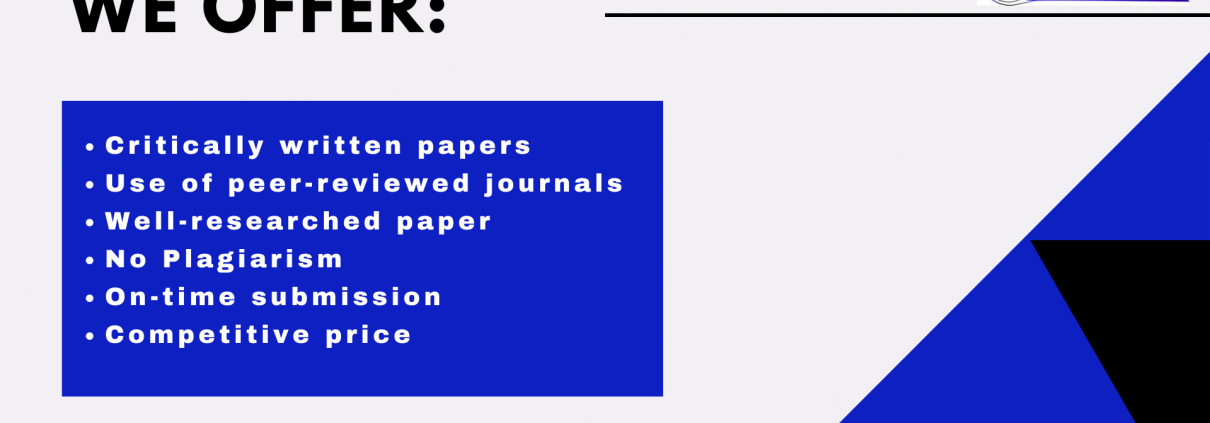IMPORTANT (RESPONSIBILITIES)
1. You have to complete 300 hours of placement for the units WIB601 and WIB602 together.
2. All placement students start in WEEK 1 and finish in WEEK 12. Unless it is specifically agreed and approved by the lecturer (Chandana) and through IG – no changes to this can be done.
3. In circumstances where the student is not placed in week 1, the hours need to be made up from the commencement of placement. (For example, instead of 3 days, it may be 4-5 days –to make up the time).
4. 8 working hours are counted in a day with breaks included. This will continue for 12 weeks, 3 days per week minimum. However, this will come up to 288 hours. You still need to make up 1.5 days in addition to fulfil 300 hours by doing the extra hours preferably before week 6. All public holidays and sick days (if any) has to be made up separately.
a. In Semester 1, there are few public holidays – March 13 th is Labour Day, April 14 th is Good Friday, April 17 th and 18 th are Easter Monday and Tuesday. Not every employer may have all these holidays. However, depending on the host institution, if there is a public holiday, you will need to make up the hours.
b. CDU semester break is not applicable to internship students.
5. Weekly time sheets have to be filled by the student and signed off by supervisor each week (and sent each week to Aysha/IG – who is monitoring the internship process externally). This is student responsibility.
6. Mentor reports are to be sent to IG/Aysha by the respective supervisors/mentors. Please remind your hosts early that these reports need to go to IG in early week 7 and in week 12.
7. Please ensure that you have clearly identified the duties, responsibilities, timings, days per week etc when you commence the internship. Do remember, once accepted, you will need to continue for 12 weeks until completion. Ensure that you have your supervisor email and phone number at all times.
8. Internship work is individual (even if you happen to be in the same place), and your work cannot be similar to /same as another person.
9. Any issues, concerns, and other details need to be brought to lecturer’s attention each week, as well as commendations. Do remember, you are monitored week by week and always. Do not use internship time/environment for personal work, FB, messaging or phone calls – and keep a record of all your emails/communication with your hosts, as a copy into your personalemail each week.
10. Ensure timeliness, discipline and professional attire/attitude every day of internship. It is highly significant and will affect your grades ( and also pass/fail).
ASSESSMENTS
1. Weekly reflective journal from students: 20%. (ALL WEEKS) – (TO BE SUBMITTED consolidate into one document only – in WEEK 12)
All students will use their weekly placement sheet (available on Learnline as an Excel document) and get a signature in the last column every week, from the supervisor. This needs to be sent to IG/Aysha end of the week/commencement of following week.
Furthermore, a 300 words word document reflecting on your work during the week is to be kept in a journal or diary. The structure of this diary is given in this document in the following pages. In addition, this reflection will also be presented by each student, on a weekly basis, in class. A portfolio of artefacts may also be collected week-by-week relating to their placement/fed into the diaries as a record. This weekly diary, and the time sheets will be the key reference point for supervisor feedback that constitutes 50% of their assessment for this assignment component. (Students do not submit weekly on Learnline, but is monitored by lecturer. The consolidated diary is submitted on Learnline in week 12- last day). Do remember that you will not get any time to submit extra, and it will be your
last day of placement as well.
2. Progress reports 1 and 2
A) Progress report due after 6 weeks of placement – 20% (End of week 6)
This report is due end of week 6 and have to be submitted by Monday evening of week 7.
Please check rubrics for format of assessment.
Submit in the WIB602 Learnline area – ONLY.
B) Progress report due after 300 hours of placement – 20% ( End of Week 12)
This needs to be submitted in the WIB603 Learnline area ONLY. It has to focus more on the second
half of your placement, but capture overall placement experience.
3. Presentation week 13 (individual) – 20%. (Will be scheduled varied times on May 29 th , May
30 th )
All supervisors are invited and expected to attend the presentation unless they cannot due to any reason. Please invite them in an email in week 11, with the email copied to me for information. The venue, time, roster etc will be provided by the time.
A copy of the SAME presentation slides in PDF format needs to be submitted both in WIB602 and WIB603 submission areas.
4. A mid-term report and final report from the supervisor/mentor – due in week 7 and week 13 (completion of placement) – 40%
This assessment report has to be sent to the lecturer for assessment by respective supervisors. All students will follow this up and ensure that the reports reach the lecturer (through Aysha/IG) by end of week 13.
The mentor report template/formats are provided on Learnline by CDU and it will be followed up by IG/Aysha. Students are not to submit this report, and it has to be routed from supervisor to the lecturer directly through IG.
WEEKLY Journal Structure (to be written, kept as a word doc and discussed in class each week).
(You may use these questions to guide you daily or weekly. You may not have answers each day – but it is necessary to have them in a full week as they will feed into your progress report).
1. Are you able to describe your organisation, its image (national/international), where your department or division fits in, where you fit in (and the role)? Do you know all the staff members in the department and the reporting lines? (Particularly names, designation and roles?). Try to develop a diagram and describe key areas (gather information)
2. Who are the key staff of your host organisation (names/positions/ your reporting level). (if this changes weekly, or daily – you need to note this down). Make a simple diagram.
3. List the tasks that you are undertaking. What skills did you use today (that you already have or from university study) What skills do you think that you still need to acquire?
4. What is the organisational culture in your placement organisation and did you pick any evidence of this today? (Examples could include training and development opportunities, reporting hierarchies, work unit structures, communication mediums, intercultural issues). How do you think (if) you fit in?
5. What did you like the best/least about your placement/organisation today? Try to pick up one aspect and describe it.
6. Was there a new experience today and what did you learn from it? Did the experience hone your specific technical skill and/or made you learn a new skill? Do you feel it helped your professional development? Which attribute has it helped develop?
7. Did you get any compliments on your work or criticisms and what did they mean to you? How did you react to this? In hindsight, could you have dealt with these better or differently?
8. Did you face any personal challenges today? (for eg. made a mistake, did not have a required skill, had someone reprimanding you, teamwork). Do you see them forthcoming in future in your career? And how do you think you will prepare for it?
9. Do you feel that you made a difference today? What was your contribution to the workplace?
10. What aspects of the placement are you finding the most interesting and most challenging?
To do List
1. Build an up-to-date resume (as you go though each week to add all learning)
2. Take a few photos (at least one) at the workplace (when possible, and if allowed) or a video recording or interviews with few people – as possible. Ensure you take permissions.
3. Draft a thank you letter for the host organisation (when you complete in week 12)
4. Remind your supervisor for reports in week 11 and 12.
Progress Report Structure (Applies to both reports, content will change)
Introduction: State the internship type, company and your role in one statement, and what you will be presenting in this report.
Background:
- Describe the organisation, its core business, location, spread, national or international image etc.
- Explain the role of your department or division structure, your supervisor/s, your role, reporting lines (An organisation chart showing where you fitted in is useful)
Work Experience (SKILLS)
- Refer to your contract and duties listed – objectives.
- What were the challenges faced?
- How did you handle them and outcomes?
- What was your key learning.
Training & Development:
- What was the training provided in relation to technical/discipline specific skills (formal and informal). What did you do to improve your capabilities in the skill and knowledge areas required for this role? Describe at least one activity in which you participated that improved your skills/knowledge for this role.
- How did this placement relate to your university learning (your career path – accounting, marketing, HR etc) Which unit contents did you draw from mostly during this placement? What facets of this content were important in the work that you performed?
Reflection
- Critically reflect on your development as a professional. This need to include technical/discipline specific skills and personality development.
(For this you can use the STAR method (Situation, Task, Action, Result) and applying them to the following: Acquisition, Application, Communication, Team work, Responsibility, Flexibility, Leadership. [For example, you may pick examples of a situation where you have ‘acquired’ new knowledge, or have been able to ‘apply’ it effectively. You should be able to demonstrate it using a situation, relating it to the task involved, what action you took and the result or outcome (STAR method).]
- What are the key highlights of your placement experience? Did it change your career direction? In your opinion, has it been good for the placement organisation? Explain.
Presentation Structure (WEEK 13) (We will run presentations towards last 4 weeks, in class, for practice).
1. Background of the organisation, your internship role, duties involved (You may use a video, or website to present this if required)
2. Present the skills acquired and learnt during the internship. Show some of the artefacts collected.
3. Trace your skills graph through 12 weeks (format will be provided later in the semester) – 1 slide only (do it in any creative manner).
4. Reflection (refer to your report to feed into this) – use STAR method (at least this) and have at least 1-2 examples. (You may wish to use other methods that STAR – be creative and proactive).
(You may present the information above in different modes, incorporating audio, video, relating to experiences during placement. You may use your own (taken) videos, interviews in workplace etc. Minimum use of ‘borrowed’ and clip art etc is recommended. All the slides should be referring to internship experience in the respective organisations, and your own creations – not Internet based).
It is expected that you have 15 minute presentations, individually. There will be other staff of CDU, ATMC, your supervisors (many) and others in audience. You can have a 10-12 minute presentation with time for questions after, and nothing less.
Remember that we have dry runs in classroom during week 11-12 – and please use the time to prepare yourself with slides and do well in the end.











